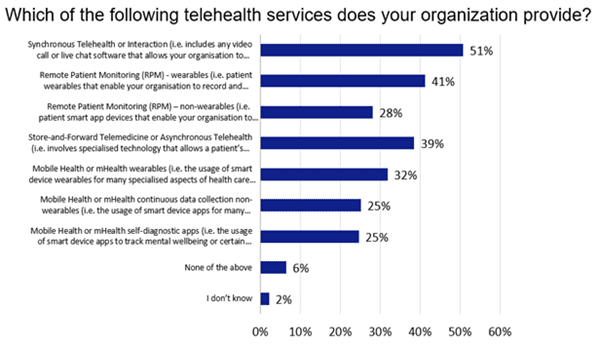Though roughly 91% of medical organizations have already implemented telehealth capabilities, more than half of these organizations have experienced cases where patients refused these services due to security concerns, according to new research from Kaspersky.
Of the medical organizations that have already implemented telehealth capabilities, 44% started to use them after the pandemic. And 52% of respondents reported cases where patients refused these services.
Global events in healthcare in recent years have changed people’s perception of the industry. Medical organizations have adapted to the new conditions, and today, 56% of healthcare institutions are planning to increase their investment in telehealth and virtual care solutions.
The survey was directed to healthcare decision-makers to learn how the digital transformation of the industry is going and which problems they believe should be solved to create a world in which everyone can gain access to affordable, fast, and quality care.
Approximately 71% of global respondents believe telehealth services will add the most value to the healthcare sector within the next five years, according to research from the survey. Professionals note that remote medicine offers advantages such as immediate reach, less disease transmission between patients and staff, and the ability to help more people in a smaller time frame.

Roughly 42% of organizations surveyed found that their patients are more interested in remote than in-person sessions because of their convenience. Other attractive telemedicine features for customers are that modern technologies save time, effort and money and provide the opportunity to consult with a more experienced specialist.
The most common service provided by organizations is synchronous telehealth, such as real-time communication with patients, including video call or chat. The second most popular service is remote patient monitoring via wearable devices, followed by asynchronous telehealth technology. This method consists of collecting and storing patients’ data in a secure cloud-based platform for further use by a treating professional.
However, 74% of respondents experienced cases where patients have refused a video call with medical staff, with 52% reporting that people declined telehealth services due to privacy or data concerns. Other reasons cited included a general lack of trust towards telehealth, unwillingness to appear on video, and the absence of correct equipment.
It is not only patients who are worried about their privacy, 81% of healthcare providers state that clinicians in their organization have voiced concerns about patients’ data protection when conducting remote sessions, and only 36% of respondents are very confident that their organization has necessary security measures.
“Trust has always been important to the healthcare sector, but today as more and more medical organizations rely on technology and digital offerings to support their services, patients also want to feel confident about the privacy of their medical data,” says Evgeniya Naumova, executive vice president of corporate business at Kaspersky. “With rapid development and complexity making the healthcare industry more lucrative to malicious actors, now is the time for healthcare institutions to make cybersecurity their first priority.”





